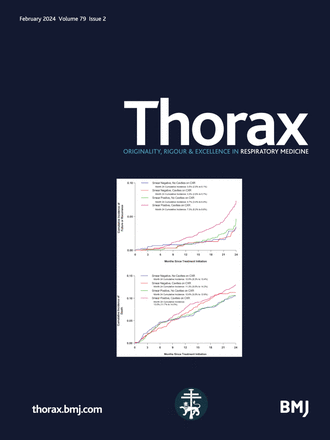Biological drivers of the host response in sepsis
IF 7.7
1区 医学
Q1 RESPIRATORY SYSTEM
引用次数: 0
Abstract
Sepsis is a life-threatening syndrome driven by a dysregulated host response to infection. Immune dysregulation arises from responses that initially were activated to protect against pathogens and preserve tissue integrity. Disturbed resistance mechanisms can result in excessive inflammation alongside immunosuppression, each of which is considered important biological drivers of the immunopathology of sepsis. Key inflammatory drivers are excessive proinflammatory cytokine activity, complement and coagulation system activation and endothelial dysfunction. Conversely, sepsis-induced immunosuppression is marked by lymphocyte exhaustion, reduced monocyte human leucocyte antigen-DR expression, and the emergence of myeloid-derived suppressor cells. Within this complex immunological environment, the gut microbiome influences host immunity through the release of short-chain fatty acids and bacterial metabolites. Thus far, immunomodulatory trials in patients with sepsis paid little attention to the identification of dominant biological drivers, which might enrich the population for those who are more likely to respond to a certain intervention. Recently, retrospective analyses of such trials, as well as small prospective trials, have provided proof of concept that subgroups of sepsis patients can be identified with specific immunological profiles, either based on a single biomarker or on high-dimensional data, that respond differently to immunomodulation. This review explores the biological drivers of sepsis immunopathology, highlighting the challenges in translating preclinical insights into effective therapies and the potential of personalised medicine approaches to improve sepsis outcomes.脓毒症中宿主反应的生物学驱动因素
败血症是一种危及生命的综合征,由宿主对感染的反应失调引起。免疫失调源于最初被激活以防止病原体和保持组织完整性的反应。受干扰的耐药机制可导致过度炎症和免疫抑制,这些都被认为是脓毒症免疫病理的重要生物学驱动因素。关键的炎症驱动因素是过度的促炎细胞因子活性、补体和凝血系统激活以及内皮功能障碍。相反,败血症诱导的免疫抑制以淋巴细胞衰竭、单核细胞人白细胞抗原dr表达减少和髓源性抑制细胞的出现为特征。在这种复杂的免疫环境中,肠道微生物组通过释放短链脂肪酸和细菌代谢物来影响宿主免疫。到目前为止,脓毒症患者的免疫调节试验很少关注主要生物驱动因素的识别,这可能会丰富那些更有可能对某种干预作出反应的人群。最近,对此类试验的回顾性分析以及小型前瞻性试验提供了概念证明,可以根据单一生物标志物或高维数据,通过特定的免疫特征来识别败血症患者亚组,这些亚组对免疫调节的反应不同。本综述探讨了脓毒症免疫病理的生物学驱动因素,强调了将临床前见解转化为有效疗法的挑战,以及个性化医学方法改善脓毒症结局的潜力。
本文章由计算机程序翻译,如有差异,请以英文原文为准。
求助全文
约1分钟内获得全文
求助全文
来源期刊

Thorax
医学-呼吸系统
CiteScore
16.10
自引率
2.00%
发文量
197
审稿时长
1 months
期刊介绍:
Thorax stands as one of the premier respiratory medicine journals globally, featuring clinical and experimental research articles spanning respiratory medicine, pediatrics, immunology, pharmacology, pathology, and surgery. The journal's mission is to publish noteworthy advancements in scientific understanding that are poised to influence clinical practice significantly. This encompasses articles delving into basic and translational mechanisms applicable to clinical material, covering areas such as cell and molecular biology, genetics, epidemiology, and immunology.
 求助内容:
求助内容: 应助结果提醒方式:
应助结果提醒方式:


